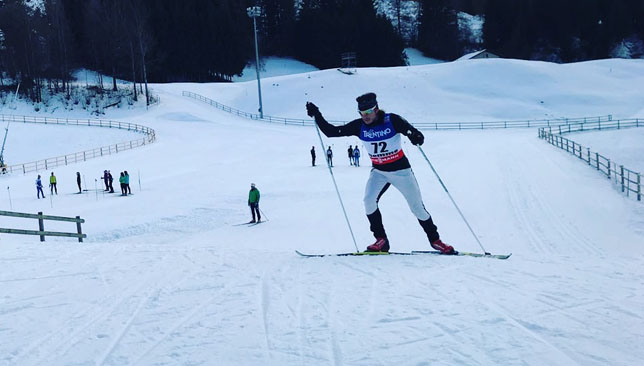
He is 19 years old and has made history as the first-ever Lebanese cross-country skier to qualify for the Winter Olympic Games, having spent just two and a half years training in that discipline.
Samer Tawk is heading off to the PyeongChang Winter Olympics this month, representing Lebanon – a nation that has a rich history in alpine skiing, but not necessarily in cross-country.
Lebanon has sent athletes to every Winter Olympics since 1948 — except for 1994 and 1998 — but never in cross-country skiing.
Like the majority of his compatriots, Tawk initially took up alpine skiing, from the tender age of seven. But less than three years ago, he decided to switch disciplines and he realised a childhood dream when he clinched a spot at the Olympics at a qualification event in Turkey last month.
“I competed in five races in Turkey. It was great, every race was 15km and I was putting in everything that I have, my technique, my body, my strength, it was all combined together,” Tawk told Sport360 from the FIS Junior/U23 World Ski Championships in Goms, Switzerland.
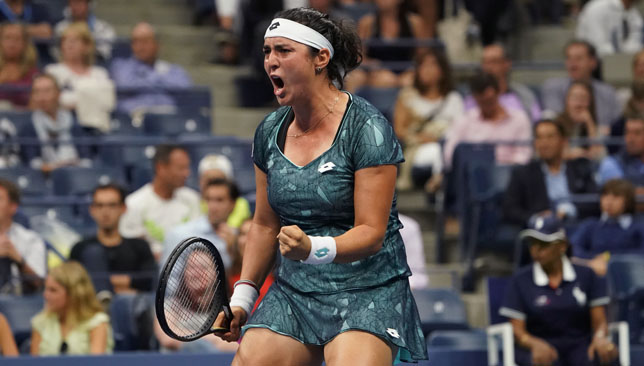
“And after the last race, when I knew I qualified it was the greatest feeling. I felt like I achieved a life-long dream, it finally came true…
“When I started learning cross-country skiing, I was thinking about the Olympics but I wasn’t sure about it because I wasn’t that good. But I trained so hard, over the past year or so, I was training a lot and then I believed that maybe I could do it if I put in hard work. It wasn’t easy, it was so hard but I did it.”
Tawk has been a scout for 10 years and considers Lord Robert Stephenson Baden-Powell – the founder of the Scout Movement – a “great inspiration”.
The switch from alpine to cross-country skiing is no mean feat and the endurance required to compete in the latter is usually built up over years and years of training.
Tawk, who has qualified for the 15km freestyle event in PyeongChang, enjoys the “suffering” he has to go through in cross-country skiing. While alpine skiing involves slopes, cross-country is done on flat planes, which means all of the force needed to move from one point to another is produced by the body.
“What I like in cross-country skiing is that if you want to be good, you should never give up, and I like this. I like to suffer and you should like to suffer in the race, 15km and you put 96 or 95 per cent of your hard work from your body, it’s so hard to continue in the race, after the race you lie down on the ground, you’re so tired, you can’t breathe… I love these tough moments,” explains Tawk.
“There’s a huge difference between alpine and cross-country, which is much harder. Alpine skiing, you need big legs, big upper body, a heavy body, and it’s another technique, strong boots, heavy skis, and you don’t need endurance in it.
“Then I switched to a completely different sport. It’s light skis, light boots, and you need to have a light body, and you need a lot of endurance.”
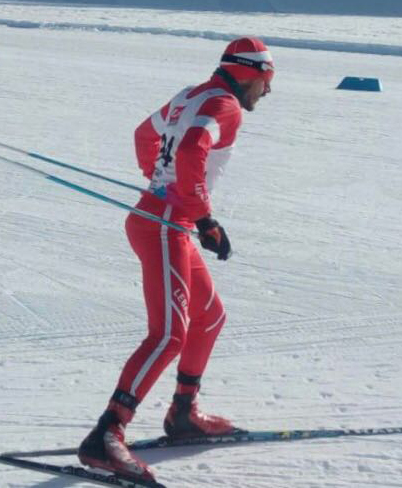
Tawk grew up, and still lives, in Bcharre, a town located in the mountains in the north of Lebanon. He is the youngest of five, and has two brothers and two sisters, who all ski, but not competitively.
This is how he describes his training.
“In the summer you spend a lot of time on roller skis, you run a lot of hours, you go hiking in the mountains at high altitude and when the winter comes you should ski two to three hours every day,” says Tawk.
The Lebanese teenager is going to university next year, where he plans on studying physical education.
“I would be happy working in that, it wouldn’t be like work for me, it would be a happy life,” he says.
Tawk hopes to continue pursuing skiing professionally, and has his eyes on the 2022 Olympics in Beijing. He says the Lebanese Ski Federation does all it can to help him (he particularly thanks the federation’s Remond Seccur for his support) but admits there is little support for the sport from the government.
“The culture of skiing in Lebanon is great but we need to work on it a lot more. If we want to have good results at the Olympics or other competitions, we should work a lot. But it’s possible because we have good people and strong people and we have the conditions for that,” states Tawk.
“Maybe we don’t have the materials, the coaches – we have coaches but they’re not Lebanese – and it’s expensive for Lebanese people to secure good coaches for their kids because foreign coaches cost a lot. And also we need support from our government, there isn’t enough support for us.”
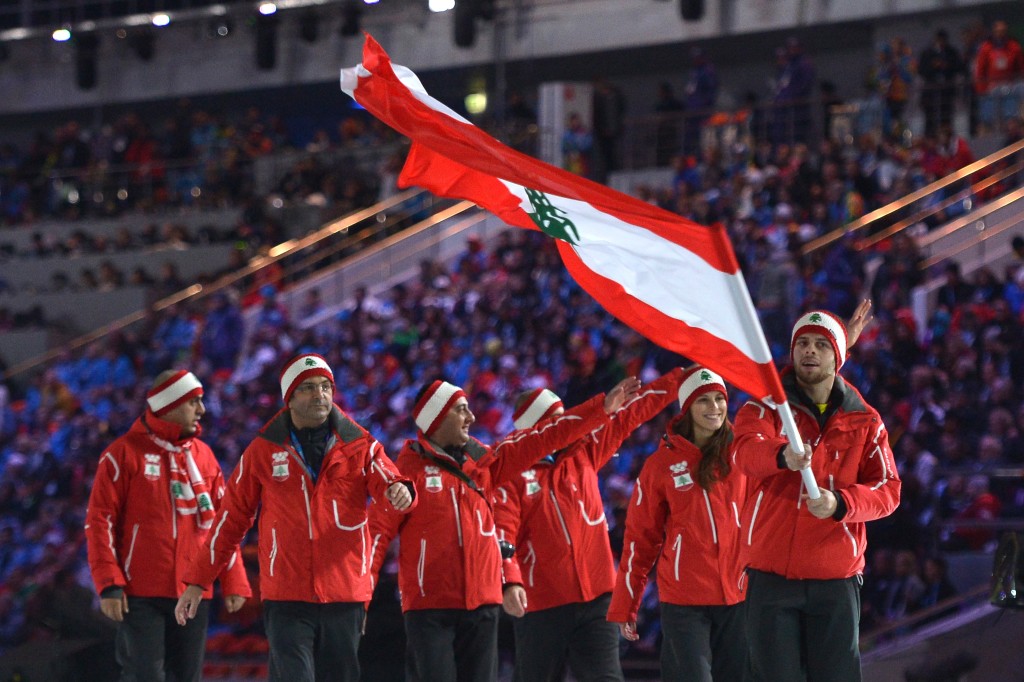
Lebanon has competed in every Winter Olympics since 1948 except for 1994 and 1998.
He is coached by Aleksandar Milenkovic, a Serbian former biathlete, cyclist and cross-country skier who competed in both the Summer and Winter Olympics.
Does Tawk see a future for himself in the sport?
“Yes of course, as long as I have the time to train while working. In Lebanon we travel long distances, if you work in Beirut, it’s far from the snow and the mountains where I train. But I’ll do my best for this,” he assured.
Tawk credits scouting for his perseverance in such a tough sport.
“This is my 10th year in scouting and I learned a lot of things from it like how to control your life, how to take decisions, and be strong,” he explains.
In an ideal world, Tawk would be living and training in Europe, to advance to the level he hopes to compete at. But he says he lacks the funding to make such a big move.
For now, he is keeping his expectations in check regarding his participation in the Winter Olympics this month.
“In Korea there’s a high level, much higher than mine because they’ve been training for like 20 years while I’ve only done this for two. They have a lot of support, like every athlete in PyeongChang maybe they spend like half a million or one million dollars to train and travel. I’m a little bit far from this but I’m still too young,” he says.
“So maybe I hope for the next Olympics I’ll be in much better shape. But this one will be a good experience for me.
“Still I’m training a lot, I’m training like I’m going to win it, because I always think and train like that. After that, whatever comes, I’m satisfied because I know I trained my best.”
Are there any athletes he is keen to meet in PyeongChang?
“There are a lot of athletes like (French biathlete) Martin Fourcade, (Norwegian cross-country skier) Johannes Klaebo and (Italian cross-country skier) Federico Pellegrino. I would like to see how they perform live, maybe I’ll train with them on the same track, that would be a great feeling and a great honour for me,” he says.
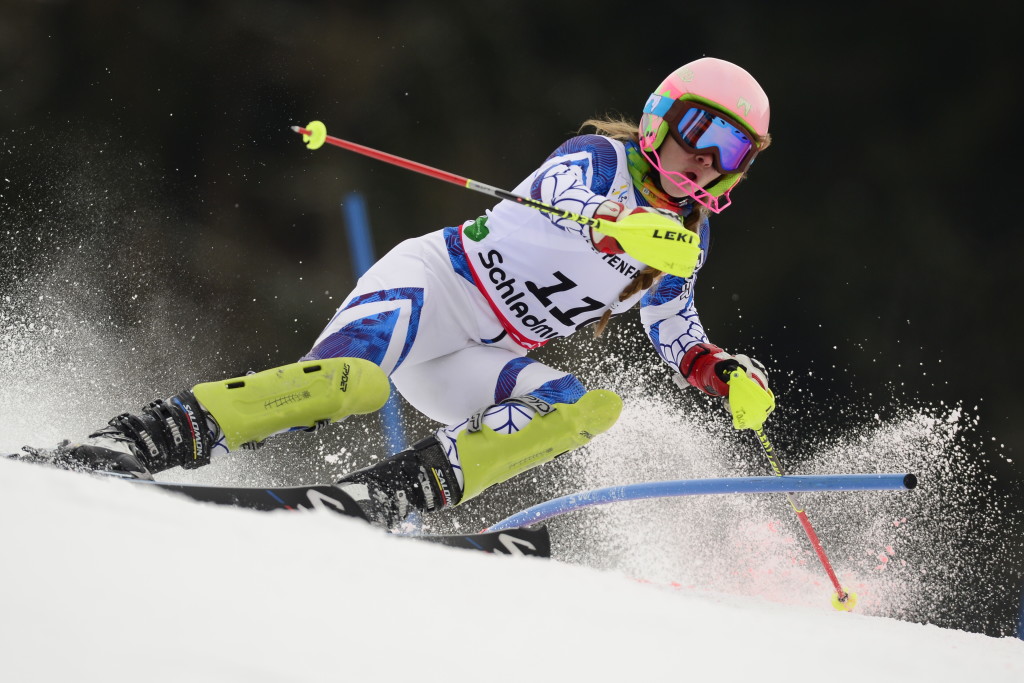
Alpine skier Natacha Mohbat will also compete for Lebanon in PyeongChang.